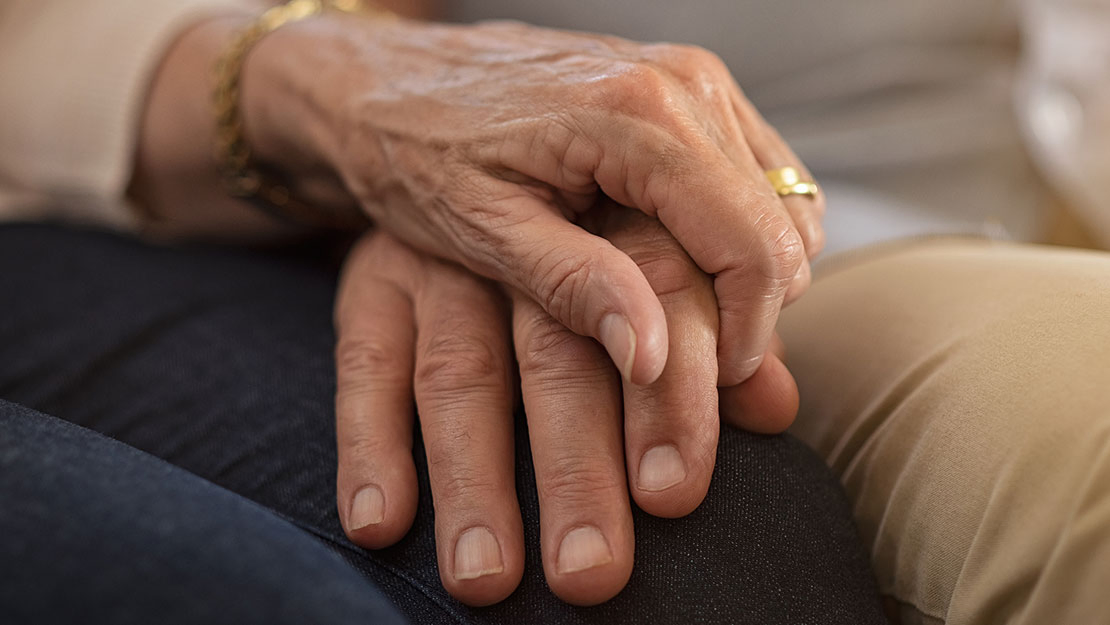
Metastatic Cancer
How Does a Person Die from Metastatic Cancer?
January 10, 2019
Welcome to Turning Cancer on Itself: Metastatic Cancer and Cutting-edge Care, a multi-part blog series about metastatic disease, current therapy and its limitations, and promising new treatment approaches that are entering the clinic.
This month, part two focuses on a basic discussion about death and dying from metastatic cancer, a difficult but important topic that will help frame the personal toll of this critical global health issue.
In the last post, we defined what metastatic cancer is and how it occurs. If you recall, we reviewed that metastatic cancer (also known as “Stage 4 cancer”) is a condition where a malignant tumor has spread from its original location in the body to distant organs, and that these colonies are called “metastases.” We also discussed that prognosis for patients with metastatic cancer is generally poor, and planning for death with honesty and compassion is a part of caring for patients with this disease.
In fact, the diagnosis of metastatic cancer is so tightly associated with death and dying that this relationship has influenced our understanding of cancer in popular culture. For instance, in TV shows or movies, we often see tearful scenes where doctors advise patients with metastatic cancer to “get their affairs in order.” In these same shows, we watch fictional characters with metastatic cancer go on important personal journeys, treating their diagnosis as a race against time to address unfinished business. In my experience, most of my patients and their loved ones understand the implications of this diagnosis, regardless of their profession.
What is less discussed and understood in the popular imagination is exactly how metastatic cancer leads to death. Although it may seem obvious that a disease that spreads throughout the body should be fatal, the reality is that many illnesses affecting multiple organs do not usually lead to an early death. For example, rheumatologic conditions like rheumatoid arthritis can cause nodules to form in the skin, joints, and lungs, not to mention scarring and inflammation in other parts of the body – and yet with proper care, patients with rheumatoid arthritis can live with their disease for decades. Or consider bacteria or fungi that infect one tissue and then spread to other organs via the bloodstream. Although these infections are serious and sometimes can be fatal, in most cases patients recover fully with the right antibiotics and other supportive medicines.
So what is different about metastatic cancer that results in disability and death? The first way to answer this question is to describe the direct ways that metastatic cancer can harm individual patients. These harms can be grouped as (A) Local effects and (B) Systemic effects. The second way to answer this question is to describe how cancer resists and escapes our treatments, which I will touch on today and continue to address in several future blog posts.
The local effects of metastatic cancer are more straightforward to understand. They are the consequences of an individual metastasis/tumor pressing on something critical in our anatomy. The human body – like a car – relies on a complicated network of pipes (i.e., blood vessels), tubes (i.e., airways), electrical wiring (i.e., nerves), and critical systems (i.e., kidneys, brain, liver) to function properly. If a metastasis lands near or inside these structures, then it may simply block, squeeze, or crush these parts in a way that can be devastating. For example, a metastatic tumor may block an airway or press on the part of the brain that controls breathing.
The systemic effects have to do with the way metastatic cancer can affect the entire body rather than a specific pipe or tube. It turns out that metastatic tumors release all sorts of molecules and chemicals that can have destructive effects on health as they circulate throughout the body. In the middle ages, these might have been called “bad humors.”
Some of these molecules disrupt how normal immune cells function, preventing them from eliminating harmful infections. Without a well-functioning immune system, an unchecked pneumonia or urinary tract infection can eventually lead to sepsis and death. Another group of molecules can alter the balance of salts such as sodium, potassium and calcium in our body. Without a proper balance in these salts, organs that rely on electrical signals like the heart and brain can fail. A third group of chemicals can wreak havoc on the blood itself, causing bleeding in some cases or generating blood clots that obstruct the flow of blood to critical organs in other cases. Finally, some of these chemicals cause patients to feel generally weak or lose their appetite, which in turn can result in a progressive decline in health due to very poor nutrition, hydration, and activity level.
Undoubtedly, it can be scary and worrying for a patient to learn about how cancer can cause death. At the same time, I have observed that many patients feel empowered by knowing what to expect — especially if they know that the causes above need not cause suffering or pain with the right care directed at symptoms. With some advanced planning and the involvement of palliative care providers, the causes described above should be associated with a calm and peaceful death.
As I mentioned above, surveying the local and systemic effects of cancer is one way to answer the question, “How do patients die of metastatic cancer?” I also mentioned that the other way to answer this question is to point out that our treatments have not been successful at ridding the body of the disease before these local and systemic effects happen. Ultimately, metastatic cancer is a crafty opponent that can frustrate, resist, and escape many of our treatments. Fortunately, our medical scientists and physicians are crafty too, and a new generation of treatments is changing the balance in the struggle between modern medicine and metastatic cancer.
In our next two posts, we will delve further into these topics. My next post will review the new approaches to drug therapy in metastatic cancer – and the promising ways in which survival expectations are being rewritten for the better in certain cancers. After that, we will learn more about how metastatic cancer escapes our treatments, which will involve a discussion of cancer’s fascinating and sometimes devious biology. I hope you will join us.
Thanks for reading our RefleXion blog – we welcome any feedback and requests for topics you would like to hear about in the future. For more frequent updates, please follow me and RefleXion on Twitter: @SeanShirvaniMDand @RefleXionmed.




